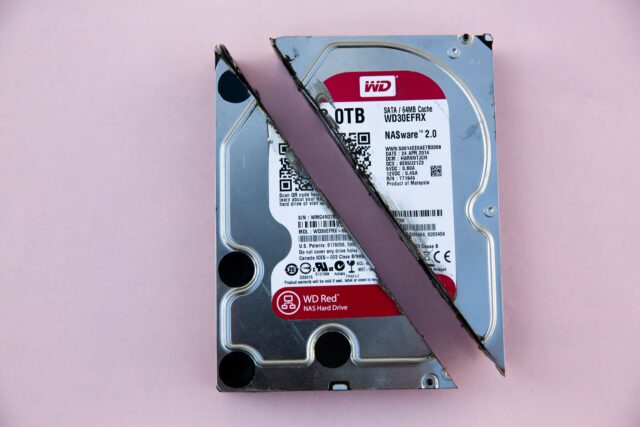
In our current data-driven age, an organization’s data is its lifeblood. To protect it is not only the recommended thing to do but an essential consideration for continued operations. Loss or corruption of data can result in significant downtime and loss of earnings. This has been the unfortunate experience of several global corporations who fell victim to ransomware attacks this year alone.
Being denied access to critical data can result in extended periods of downtime, loss of earnings, and reputational damage. The good news is the worst-case scenarios like this can be prevented by following a robust backup policy. Here are ten reasons why backing up data is essential to your organization’s success.
1. Reputation and Trust

Consumers and stakeholders will share vast amounts of data with organizations, some of that data are incredibly sensitive. Be it credit card details, social security numbers, or even medical records. This requires the person sharing their information to trust whoever is handling their information to store securely. If a disaster were to strike and that data is corrupted or lost with no recovery option, like a backup would provide, customer trust will be one of the first casualties. This can result in massive reputational damage that can take years to recover from.
With the advent of cloud storage services, the maintenance of customer trust is even more important than before as now third parties have to be included in the process along with cloud storage providers. For example, having a aws s3 backup policy along with software to facilitate this is vital in keeping that hard-won trust.
2. Increasing Financial Costs
In 2019, research showed that the average cost of critical server downtime per hour for reported cases across the world was between 300,000 USD and 400,000 USD. This number has remained fairly constant over the past two years similar research was conducted. That is the silver lining as the average cost itself is alarming. Having good and robust backups reduces critical server downtime, thus potentially saving hundreds of thousands of dollars.
3. Sharp rise in Endpoints

Along with the drastic increase in the sheer amount of data handled by organizations also comes a steep rise in the number of endpoints used by organizations. The increase in laptops, smartphones, and Internet of Things devices currently in use has driven the amount of data handled. This data needs to be protected and backups are one method of doing so continually.
4. Mandatory Compliance
Many economic sectors have legislation attached to determining how data should be stored and protected. Any loss of data that is deemed to be a result of negligence can result in some incredibly hefty fines. With the enactment of the EU’s GDPR legislation companies have already fallen foul of compliance regulations and been fined. Fines of 26 million USD have already been handed out by regulators for organizations that failed to protect customer data.
5. Audits and Taxes

Being audited is a reality for most organizations. These can be stressful times, even more so if records have been lost to data corruption. Given that many tax and revenue agencies require data to be stored for several years having backups of said data can save a lot of heartache and stress during an audit. Remaining on the tax man’s good side is one way to keep the doors open and lights on to the business.
6. Natural Disasters
The effects of a cyber-attack can be devastating but that is just one of many crises that can befall an organization. What receives little attention is natural disasters. Flood, earthquakes and more can destroy precious servers and computers. Data can be wiped out of existence. Businesses are insured against this, but can companies say in all honesty that they have applied the same diligence to data they handle? Offsite backups can be the insurance policy needed to recover quickly from such a disaster.
7. Evolving Threat Landscape

Cyber threats have continually evolved with advancements in technology. Ransomware gangs now release data stolen before encryption, meaning that not only do victims suffer a ransomware attack but also a data breach meaning fines can be imposed if the victim did not comply with relevant legislation, standards, and best practices.
Malware has also been seen to target cloud storage and network assets, meaning that simple backups on-site are not enough. Offsite backups, physical backups not connected to the internet, and third party data management professionals all need to be considered to develop a robust backup policy.
8. Improved Productivity
Like with updating software packages, backing up data is often seen as time-consuming. Both then are assumed to hurt productivity. However, once a good policy is in place, backups can help improve productivity. They reduce system downtime and prevent extended periods of employees being offline in the instance a hard drive fails.
9. Be more Competitive

Those with robust backup policies can be more competitive than their business rivals, especially if the rival has a lax backup policy. Backups can help guarantee a competitive edge as funds invested are nowhere near the funds needed to recover from incidents causing downtime of days, weeks, and months. When the potential for fines are considered those, who invested in comprehensive backup technology before a crisis emerged will be in a better position financially moving forward.
10. Improved Client and Investor Relations
Protecting data correctly has been seen to improve client trust and relations which in turn leads to improved sales. This in turn keeps those who have invested in the company happy as the potential for improved returns exists. Happy clients and happy investors can never be a liability, but lacking data protection is most certainly a liability.
Conclusion

Reasons for backing up data can be imposed by legislation and best practices, as well as adopted to improve organization performance. Viewing backups as an essential practice for success though is not debatable in a data-driven age, like the one we find ourselves in.
You can find additional details here: https://www.baculasystems.com/blog/amazon-aws-s3-backup/







